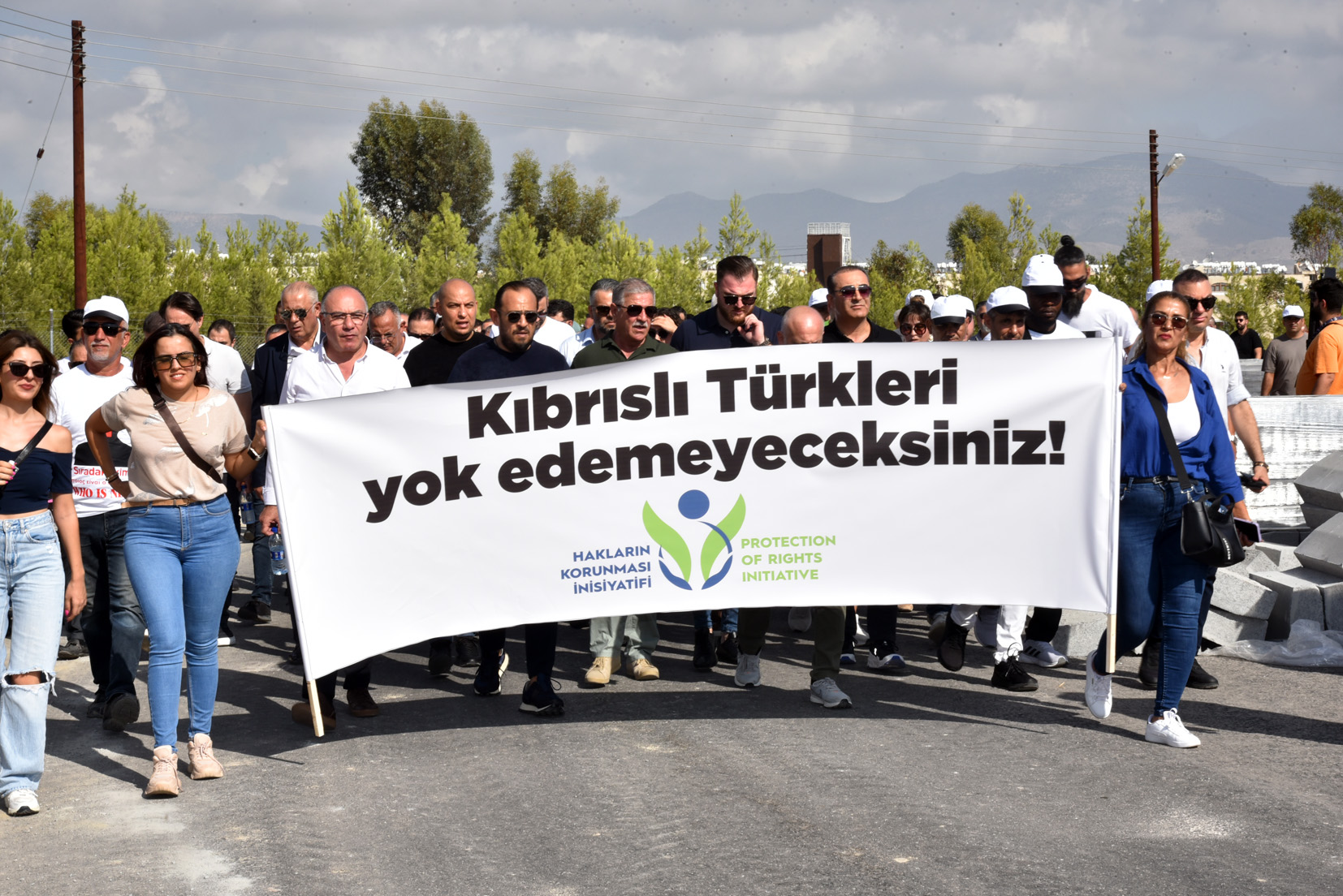
The “Rights Protection Initiative” staged a protest at the Metehan Border Gate, demanding the release of individuals detained for real estate transactions.
During the demonstration, participants held banners in Turkish, Greek, and English, calling for the freedom of those arrested in connection with real estate dealings.

Monday’s protest action began beside the Civil Defense Organization in Ortaköy, Lefkoşa, with marchers proceeding to the Metehan Border Gate, where a press statement was read.

After the statement, a letter was submitted to an official from the UN Peacekeeping Force to be delivered to UN and EU officials.
The initiative, which comprises several organizations, including the Cyprus Turkish Contractors Union and the Turkish Cypriot Chamber of Commerce, received support from various groups.

In the press statement, read in both Turkish and English, the initiative emphasized that the property issue could be resolved through the Immovable Property Commission (IPC).
It condemned the economic attacks initiated by the Greek Cypriot side, which have hampered reconciliation efforts, and vowed to resist any initiatives aimed at the extinction of the Turkish Cypriots.

Hasan Esendağlı, President of the Turkish Cypriot Bar Association, stated, “We have come together to draw attention to the property issues and injustices in Northern Cyprus.”
He highlighted that these problems extend beyond local concerns, holding significant importance in terms of international human rights and justice.
Esendağlı expressed sorrow over the failure to reach a comprehensive solution despite continuous and sincere efforts from Turkish Cypriots during the Annan Plan referendum and the Crans-Montana negotiations.
He pointed to the Greek Cypriot community’s unwillingness to compromise as the root cause of the deadlock, noting that it exposes the unjust isolation faced by Turkish Cypriots, which the international community has failed to address with tangible actions.
He also expressed deep concern over recent legal actions taken by the Greek Cypriot leadership against businesses operating in the TRNC, warning that such manoeuvres escalate tensions and threaten stability.

“The Greek Cypriot leadership’s attempts to weaponize the law for political purposes are escalating tensions and undermining reconciliation efforts,” Esendağlı added.
Emphasizing the effectiveness of the IPC as a solution for property issues, he noted that it has been recognized by the European Court of Human Rights (ECHR) as a fair and effective means to address property claims.
Esendağlı urged Greek Cypriots to exhaust all legal avenues before resorting to direct court actions regarding property claims in the Turkish Republic of Northern Cyprus (TRNC).
He called on the international community to encourage the Greek Cypriot side to refrain from actions that increase tensions, including the arrests of Turkish Cypriots and foreign investors.
He cited recent wrongful detentions, which he argued not only violate fundamental human rights but also adversely affect the economic situation of Turkish Cypriot businessmen.
Esendağlı concluded by asserting the Rights Protection Initiative’s commitment to international law and dialogue, stressing that they would oppose any efforts aimed at the disappearance of the Turkish Cypriots.